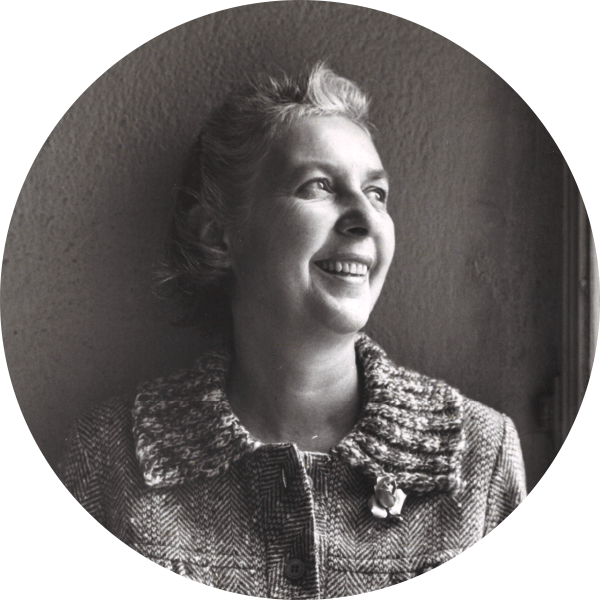Building our Path Forward
2021 marked the Scherman Foundation's 80th anniversary. To commemorate this milestone, we highlighted our journey, exploring the Foundation's historic values and longstanding support for organizations at the forefront of social change. This anniversary also sparked a significant transformation within the Foundation, deepening our commitment to racial justice and equity. In response to the racial justice uprising of 2020, we've spent the past three years reimagining our framework.
This process culminated in the creation of new Mission, Vision, and Transformation statements, alongside updated program guidelines released in 2024, all reflecting our strengthened dedication to anti-racism and racial justice. We've built a shared understanding of racial equity among our board and staff and reassessed our grantmaking strategies to better align with our two core commitments: advancing racial justice and emphasizing the importance of organizing, power shifting, and movement building in BIPOC communities. As we move forward, we continue to challenge traditional philanthropic structures and strive to be better partners, advocates, and allies to our grantees—ensuring transparency and accountability throughout this ongoing journey.
“Entrepreneur Harry Scherman establishes a small family foundation.
Known for his great success launching the Book-of-the-Month Club in the 1920s, Scherman starts a foundation with average annual giving of $100,000. Members of the Club’s editorial panel, including George Gallup and Dorothy Canfield Fisher, also join the Foundation’s board.
”
“Early funding prioritizes underserved New York City communities.
The Foundation’s early grants support studies on economic policy and its impact on workers, as well as funding direct-service organizations including the Federation of Jewish Philanthropies and the Bowery Residents Committee.
.”
“The Scherman Foundation’s mission takes shape.
An amendment to the Certificate of Incorporation defines the Foundation’s focus on issues including “the encouragement of art,” “the prevention of cruelty to children,” and other efforts to assist communities affected by social and political change and inequalities.
”
“A new generation joins the board.
Harry Scherman’s daughter, author Katharine Scherman Rosin, and son-in-law, Axel Rosin, become members of the Foundation’s board. Scherman’s son Tom would join a decade later, and the family continues to honor this legacy with a third and fourth generation still serving today.
”
“Grantmaking in the arts shifts from the old guard to the vanguard.
The Scherman family’s passion for art and music is reflected in early giving to many prominent cultural institutions. Yet with its first grant to The Public Theater in 1962 and later to BAM starting in 1980, the Foundation increasingly turns its support to innovative arts groups capable of reaching new audiences.
”
“The Foundation joins the fight for reproductive freedom.
Amid the women’s movement and demands for sexual and reproductive rights, Board member Helen Edey helps guide grants toward family-planning organizations including the International Planned Parenthood Foundation as well as advocacy groups like the Religious Coalition for Reproductive Choice.
More on Reproductive Rights & Justice →
”
“Axel Rosin succeeds Harry Scherman as President of the Foundation.
Upon Harry Scherman’s death, Axel Rosin, husband of Katharine Scherman Rosin and longtime member of the board, becomes President of the Foundation. Rosin would serve as President until 1993, with a deep devotion to New York City and supporting its diverse communities.
”
“Funding promotes human rights and liberties, in the U.S. and abroad.
The Center for Constitutional Rights becomes a grantee, beginning a relationship that continues through the 9/11 era and today. The Foundation also lends support to the Southern Africa Legal Services and Legal Education Project to combat abuses under apartheid.
More on Human Rights and Liberties →
”
“A timely grant helps newly-arrived refugees.
In response to challenges faced by Vietnamese refugees, the Foundation issues a grant to fund the publication and distribution of a bilingual guide to living in the United States. Flexibility to embrace timely funding opportunities has remained a core value of the Foundation.
”
“The Book-of-the-Month Club is sold, leading to substantially increased giving.
Proceeds from a merger with Time, Inc., along with bequests from Harry Scherman, his wife Bernardine, and their son Tom, increase the Foundation’s endowment and annual giving ten-fold. Support expands to include conservation, peace and disarmament, community action and social welfare, human rights and liberties, family planning, and the arts.
”
“David Freeman is hired as Executive Director, becoming the first professional staff member.
A prominent philanthropy expert and former president of the Council on Foundations, Freeman would steer the Foundation until 1993, overseeing significant expansion of its programs and annual giving.
”
“Karen Sollins becomes the Foundation’s third President, and Sandra Silverman is hired as Executive Director.
Axel Rosin becomes Chair as his daughter, computer scientist Karen Sollins, succeeds him as President. Longtime board member Sandra Silverman becomes the new Executive Director, and together they lead the Foundation toward a more explicit commitment to social change and multisector grantmaking.
”
“Environmental grantmaking shifts from conservation to climate.
The Scherman family’s passion for nature and wildlife led to early preservation-based donations, including 125 acres that became the Scherman Hoffman Wildlife Sanctuary. Growing awareness of global warming refocuses the Foundation’s Environment program on combatting climate change, with grants to major players like the NRDC as well as local mobilization efforts.
”
“Karen Sollins becomes Chair of the board and broadens Foundation decision-making.
The role of President and Executive Director are merged into a single position as part of operational changes that also include expanding the staff and engaging the expertise of a board increasingly composed of prominent leaders in fields related to the Foundation’s work.
”
“Mike Pratt becomes Executive Director and President of the Foundation.
A Program Officer with the Foundation for 13 years, Pratt’s perspective on social change was informed by his experience in community organizing as director of the Straphangers Campaign, and by his years as a litigator on housing justice at NYC’s Legal Aid Society.
”
“The Foundation sets its sights on Strengthening New York Communities.
Prompted by a shift towards advocacy and organizing, the Social Welfare Core program is replaced with one focused on community leadership and empowerment. At the same time, the Reproductive Rights program is reoriented with an intersectional reproductive justice framework, and a new Government Transparency and Accountability program is established.
More on Strengthening New York Communities →
”
“The Rosin Fund is established to support innovative, short-term projects.
A generous bequest from Katharine Scherman Rosin establishes a new giving program: The Katharine S. and Axel G. Rosin Fund. The fund provides support for a limited number of high-impact projects that address critical issues in the Arts, Strengthening New York Communities, and Environment.
”
“Amid social turmoil and anti-democratic threats, the Democracy program is created.
Building on the Government Transparency and Accountability program, the new area promotes an inclusive, accountable democracy. The Foundation also commits to rexamine its programs and operations through a racial equity lens, a priority accelerated by the disparate impact of COVID-19 on BIPOC communities and the outcry over continued racially-driven police violence.
”
“Marianna Schaffer becomes Chair of the Foundation’s board.
An experienced nonprofit leader and VP of Programs at the Dodge Foundation, Schaffer brings a focus on aligning goals and values of equity, anti-racism, and justice. She is the first woman of color and first non-family member to serve as Chair.
”
“The Foundation launches its racial justice framework.
In 2024, the Foundation released new Mission, Vision, and Transformation statements, alongside updated program guidelines, solidifying its commitment to anti-racism and racial justice.
”
read our full story
Discover the full history of the Scherman Foundation in this 90-page commemorative volume. This publication details our 80-year journey from 1941 to 2021, chronicling our evolution from improving "social welfare" to our current focus on movement-building and systemic change.













